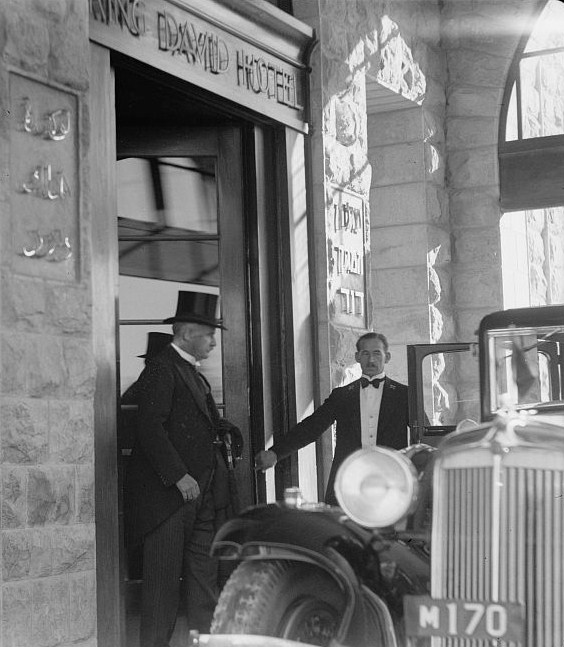
7 August 1936 – 19 Av 5696
In London, Lord William Robert Peel was appointed to head the committee that would be known by his name. Set up to digest the events of the Arab Revolt and general strike in British Mandate Palestine, the committee was charged with examining three key issues: the causes of the revolt, possible solutions to the conflict between Jews and Arabs in the country, and the continued role, or otherwise, of the Mandate government in Palestine. The committee heard from leaders on both sides, as well as senior members of the British administration, in a sincere attempt to get to the root of the conflict, but did not enter into the details of actual revolt. It heard in principle from over a hundred witnesses, and then provided its recommendations.
The Peel Commission came to the conclusion that the two nations existing in the Land of Israel nurtured opposing interests and ambitions, leaving no hope of resolution within one political entity. As to the Mandate government, it pronounced its situation unworkable and recommended that it be abolished. The Mandate had been drafted, it claimed with no expectation of the massive Jewish emigration from Europe that had since ensued (as Chaim Weizmann had testified, for Europe’s 6 million Jews, the world was now “divided into places where they cannot live and places where they cannot enter”); the number of Arabs had also been increased by immigration. Its continued rule would only result in further outbreaks of violence.
As a result the Commission’s recommendation was partition of Palestine into two states, one Jewish, the other Arab, leaving a narrow corridor connecting Jerusalem, Bethlehem and Jaffa in the hands of the British. Jewish immigration should be drastically curtailed, during the transition period before a small percentage of the country was handed over for a Zionist state, leaving the majority of areas under Arab rule.
The Arabs rejected the commission’s ruling out of hand; the Jews accepted it with mixed feelings. It was the first time a British political body had accepted the need for partition. On the other hand, the Jewish state it promised would be tiny and vulnerable, and in the immediate future, there practically no Jewish immigration would be permitted.
The Peel Commission was a crucial turning point in the series of committees which led, eventually, to the end of the British Mandate and the establishment of the State of Israel.
